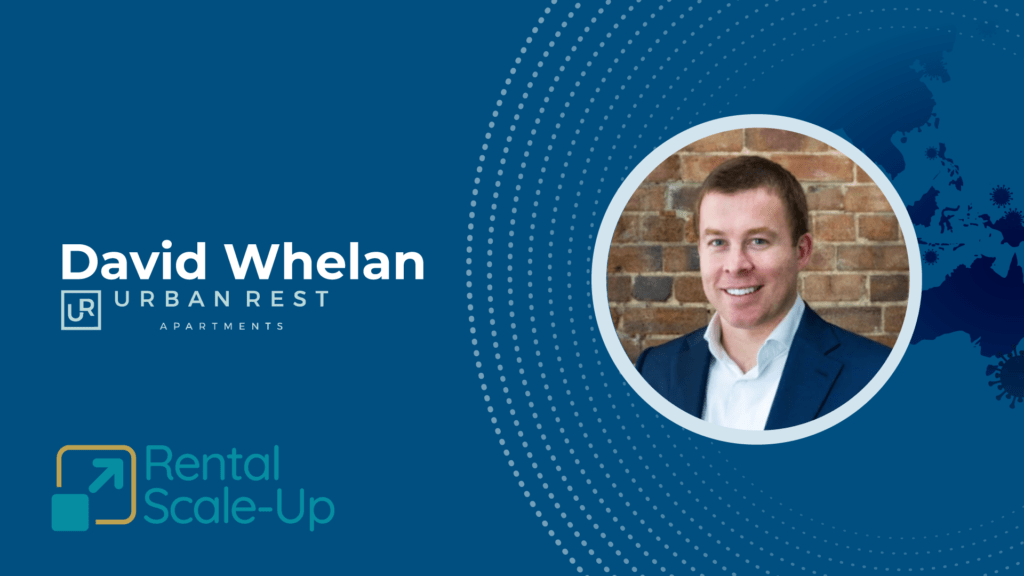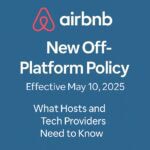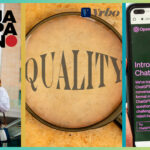This article is part of our Rental Scale-Up vacation rental management conference series. This is an extract from our May 2020 conference: “How villa and holiday rental managers are navigating the COVID-19 crisis in Southeast Asia and Oceania.”
Vacation Rental Management Conference: Urban Rest Apartments’s David Whelan
David is an ex-finance professional turned entrepreneur, founder of a technology/real estate platform Urban Rest Apartments. Urban Rest is aiming to disrupt the corporate accommodation market by allowing individuals to list their own properties for use by executive travelers on the platform, giving them access to corporate clients.
Vacation Rental Management Conference: Video From The 2020 Southeast Asia & Oceania Conference
- David’s company, Urban Rest Apartments, specializes in mid- to long-term stays for corporate guests. Their typical guest is a consultant or project engineers who are in a location for a couple weeks or months and want all the amenities of an apartment (kitchen, laundry, etc.)
- The company focuses on building strong distribution channels, using corporate travel channels, and supporting their sales team.
- During the coronavirus crisis, the first change was that international travel stopped – people couldn’t travel, projects were called off, etc. Their properties went from around 70-80% occupancy to 10-12% within a couple of weeks.
- In the meantime, they tried to market the properties as quarantine accommodations for people returning to Australia who needed to isolate for 14 days.
- They’ve seen recovery at their properties located outside of the main cities; people want to get out of the city and enjoy some more space.
- Brisbane and Adelaide have been the hardest hit because those cities typically have more tourism. Sydney and Melbourne are recovering more quickly but perhaps due to the volume of people in those states.
- Urban Rest Apartments already noticed a trend pre-coronavirus toward corporate travelers wanting to stay in the fringes of the city, so they had strategically acquired inventory in these areas.
- Rather than grabbing as many properties as possible, the company implemented very strict brand standards related to which properties can join the portfolio.
- Within the property, they use standardized furnishings, amenities (like coffee makers), air conditioners, etc.
- The company had also already implemented standardized cleaning procedures by acquiring a cleaning company, which allows them to provide a high standard of cleanliness.
- Their cleaning company provides cleaning services for other property management companies too – and the income from the cleaning company covers Urban Rent’s costs.
- Urban Rent sees a lot of value in being able to train their cleaning staff and maintain accountability.
- Urban Rent traditionally uses Airbnb and Booking.com to fill gaps between direct bookings, but within the last few months they have relied on Airbnb and Booking.com more. Airbnb is booking a lot of long-term stays for them.
- Once intra-state and international travel comes back, David expects to see more direct bookings. Direct bookings will continue to be their priority since the average length of stay is generally longer and their margins are higher.
Vacation Rental Management Conference: Full Conversation Between David Whelan And Thibault Masson
Thibault:
Dear Rental Scale-Up members, thank you for joining us for this session. I’m now with Dave Whelan. He’s a CEO, founder of Urban Rest Apartments. His company is present in five cities across Australia. So it would be talking about how demand is right now in Australia for him. But I would read go and deep dive with him into a topic that I know a lot of property managers having nine right now, which is going after corporate travelers. As we will see, Dave is a very good experience in his field and he can share actually the gaps in terms of expectations between the state leisure guests and corporate travelers. You will see how being able to control the quality, the expectations of the corporate travelers is very important and that’s not always easy to do. And when I’m thinking about control of quantity of this heated topic of cleaning and coffee times, it’s very important. So lots of topics. Let’s, let’s get started now, Dave. First, welcome and how are you?
David:
Thanks. They will. I’m great. Where it’s been a bumpy couple of months, but we’re getting through things seem to be starting to recover and certainly locally and to a kind of wider degree globally. But yeah, it’s been, it’s been a lot of interesting learnings I think over the last couple of months.
Thibault:
So can you, can you take us to what’s Urban Rest Apartments does normally? Normal times.
David:
Yeah. So I mean, in the good times, and prior to this we are a we’re effectively a corporate accommodation provider is where we put ourselves. We focus more on mid to longterm stays. So we don’t really compete in the short term transient and corporate market. And although we do have some buildings that we run entirely as service combination, but, and the main thing that we do is focus on what we would consider medium to longterm. So that’s anything generally North of about seven to 10 nights where companies are looking for, you know, full facilities such as kitchens, internal laundry, so they can, their employees can settle in. So our typical client would be, you know, management consultants and project engineers, that kind of thing, where in some of our, for generally a couple of weeks to a couple of months and we would more consider ourselves a hotel distribution service and as opposed to a pure property manager, because we kind of approach it from the other way around. But we have created a branded apartment offering and we are trying to then use the capability, the capabilities we built in our backend and our distribution capabilities and actually offer them to individual homeowners so that they can be part of that. So rather than approaching it from the management perspective and just using passive channels to get guests, we focus much more actually building our distribution capabilities and our sales channels, going out, getting those clients and then using individual owners and allowing them to benefit.
Thibault:
So let’s, let’s, let’s get, so just talked about normal times I would say and hopefully it will come back. So what, how has the COVID-19 crisis been like for your business corporate travel business and how is it now? What do you see?
David:
Yeah, look, I mean we’ve had to make a quite a lot of adjustments to be honest, to deal with the current market. I think one of the first things to drop off was international travel. So that was a pretty big section of our book was for international clients who we had coming in from overseas and working here for a number of months and we kind of dropped from about 87 88% occupancy to about 10 or 12 within the matter of about probably two weeks where everyone just go recall to their own countries, projects got stopped, whatever. We just lost our business. So we’ve try to a few different things. In the meantime we try to set ourselves up as a, you know, a short term kind of Cove ID at quarantine thing that people could stay up for the two weeks while they’re self isolating when they’re coming back.
David:
And that was, you know, limited amount of uptake. We tried to set our, certainly our city-based properties up as kind of remote offices so other people could use them if they were working remotely and to have a, almost like a separate office if they were funny and difficult to work from home with the distractions of the typically take place. And that was, we had some success with that and then we’ve kind of pivoted towards just accepting more retail clients. We typically would, so our traditional corporate direct booking channels, you know, slow down significantly. So we utilize and the more reach typical retail channel. So we ended up picking up Silkwood a lot of longterm stays, but it was more people who were returning back to the country and I’m an ex, pats had been repatriated and who’d been here now for, you know, a number of months until they returned home or your typical market, like people who are renovating their houses and still kind of need a longer place to stay.
David:
So we try to, you know, to fill the properties as much as we could. And we still see the city-based properties in particular a struggle because people just don’t want to be in the city, especially if they’re on lockdown or restricted. And I think people value being near parks or other things, you know, places where there’s a bit more to go out and see while the can. And so we’ve definitely seen it start to say recovery in those kind of fringe suburbs and more holiday typically focused markets, whereas the city ones are still a bit slow. So yeah, it’s been, it was a very sharp drop off. I mean it was a real cliff and then it’s been a slow and gradual recovery. And now with restrictions starting to ease, we’re starting to see a bit of kind of green shoots coming back into the market.
Thibault:
And if you look at your five different, I would say biggest markets what differences you there?
David:
Yeah, so I mean we have locations in Sydney, Melbourne, Brisbane, Adelaide and Canberra. And at the start, well, I mean Canberra has held up extremely well throughout the whole thing being pretty consistent demand and pricing was impacted a bit. But overall demand is pretty much held for men. I think that’s because it’s really local government sits. So obviously there’s been a lot of parliament sessions trying to work through all the regulations and legislations is being put in place as a result of coven. So that’s held up reasonably well. Brisbane is being prob Brisbane and Adelaide have been pretty hard hit because they’re more traditionally tourist focused markets and with more reliance on international guests. So it’s, it’s really freed up a lot of stock in those cities as well. Yeah, I mean as opposed to the hotel market that I’m [inaudible] a lot of inventory now that’s available.
David:
So that’s, those are being the hardest hit. And Sydney and Melbourne, it’s, they’re kind of consistent demand areas. Usually we’ve seen them recover quicker because more people, I think as they’re returning from overseas are typically based Sydney or Melbourne. And because just say the biggest city. So it’s, I think probably a function of just volume people in those States have meant it held up somewhat. And then, and as we’ve started seeing things recover, I think we’ve seen interest state traveling starting to pick up now as well. So the areas that have typically had, you know, reasonable amount of domestic travel, which are mostly Sydney and Melbourne, I’ve definitely started to recover the quickest.
Thibault:
And then let’s start talking about expectations from, from corporate travelers because even in a, in a pickup in demand, you, you, you were saying that it’s not necessarily that essential urban areas that are seen the first demand, but what is fringe areas? Right. And I know that’s, yeah, I think you have clients like McKinsey for example, and we were discussing before shooting this video when, and I think you’ve said actually it’s been a trend for a while already that these companies would prefer sending out their their employees to places that are actually Oh, fun to be with or pleasant to be with on the weekend, for example. Right. So with coffee 19, do you think this trend of taking care of the wellness of the, of the employees is something that’s gonna be lasting? And are you well positioned for that to capture this demand?
David:
Yeah, look, I mean I think, you know, that’s what I think being a global point of focus over the last probably year or two in particular has been a shift towards employee wellness and wellbeing, both from a physical and mental aspect. That’s something we’ve always focused on has been providing spaces for corporate travelers who were traveling longterm to actually allow them to be as physically and mentally healthy as possible. And that was the whole reasoning. I mean, I used to travel quite a lot for work myself and you know, you really get sick of that staying in crown hotel rooms for long periods of time. So it was really creating a product that could cater to that market and you know, allow people to actually cook for themselves at home and a full facility. So I think that we’ve seen that as a trend in general across the market.
David:
Certainly are some of our larger clients in over the last kind of six to 12 months have been requesting more and more options that were not where they usually would have booked, which would be, you know, city-based as within a five minute walk of their office or you know, close to client’s site. Whereas if people are now traveling for a number of months at a time, they’re very focused on making sure they can both settle in and relax in the neighborhood but also have things to do on the weekends and you know, or be close to beaches and parks. So we had seen suburbs that would typically have been more relevant either for holiday makers because they are beach side suburbs or on the fringes of the city, which would be more your kind of, I’m probably more people for the younger kind of tech type companies who are looking for a bit more of a kind of funky area to live in when I’ve seen much more blue chip and kind of, or sorry, the more kind of, yeah, the big blue chip companies wanting to use that type of product for their staff.
David:
So I think there’s definitely been a notable shift towards removing people out of, you know, being right in the heart of the city and actually pushed them into areas where, you know, there’s things to do on the weekends and evenings and bars, restaurants, that kind of thing. And not just a focus on, you know, being as convenient to the office as possible. So we’ve we’ve definitely been more conscious about picking up and looking for inventory in those areas because we think as you know, as a trend and especially given covert with now you know, more likely to have a reliance. I’m not always going into the office, but I’m having somewhere that people can work from but also enjoy being, I think that’s definitely gonna become more of a pronounced trend.
Thibault:
And I mean in that case, David, Urban Rest Apartments is answering this need. But if you look at the map, the Maslow’s scale of needs right now here in the basis something that the corporate travelers are expecting is predictability and just safety, right? And again, you just call me nine. Sometimes safety means also cleaning. So how are you providing, how is Urban Rest Apartments providing this, this predictability and this, this safety and making sure that things are under control and with race, right? The right standards, how you, how do you do that?
David:
Yeah, look, I mean this isn’t me. I probably need to step back a little bit to, to explain. So we, part of what is allowed us to actually make inroads into the corporate market and capture some of those clients has been moving away from how traditional short term managers offer, which is just picking up as many individual properties as they can. And then just you know, making the actual manager of them as efficient as possible. We made a pretty conscious decision early on to try and create a and standardized product so that when we would go to corporate clients they would know exactly what they were getting regardless of where at which of our properties they were staying in. So we implemented very strict brand standards and even if we’re bringing on a third party inventory, which is what we consider, where we manage individually owned properties.
David:
And so it has to meet about 250 different criteria for us to actually take it onto our books. And we then kind of offer, you know, standard furnishings, all that across it. So when we do site tours, for example, with a new potential client, we can go and we can show them a status and this is what you’re going to get no matter where you stay. So, you know, coffee machines have standard, it’ll have air conditioning, it’ll have large flat screen TVs, you know, Netflix connected. The kind of things that you know, high speed internet is obviously a big one. And, and it’s, it’s the consistency that we’ve found is what has been able to set us apart and actually win those clients. A big part of that aspect is the cleanliness and the standards of that. So, I mean, we’ve gotten feedback anecdotally from travel bookers within corporate, so they wouldn’t use, you know, the kind of shorter, traditional, shorter term channels like Airbnb or booking.com because they found, you know, all it takes is one person to have a bad experience.
David:
We turn up and the property hasn’t been cleaned well or it hasn’t been cleaned at all. And that’s it. They’ll never go back. So we’ve, we actually ended up buying a cleaning company to do our housekeeping because we, we probably went through four or five different companies. We just couldn’t find contractors that we could find consistent enough standards, especially at large volumes. You might find one or two smaller ones, but as soon as you start giving them, you know, a couple of hundred jobs a week and they would either bring in sub-contractors themselves or you’d need multiple providers. And we just found that we couldn’t get a consistent amount of quality. So we ended up bringing it in house. We bought a company and that’s really been able to allow us to train them up from scratch. And especially, I think with coven, one of the big items that people have been asking is what are you doing?
David:
How have you upped your, you know, your cleanliness and how you actually dealing with these. So, you know, we’ve trained our cleaners now to focus on high touch points. Like, you know, remote controls for TVs, lights, switches, door handles. We’re now putting in antibacterial wipes and hand sanitizers for clients to use when they arrive. So if they want, they can watch things down further and we now are cushion covers. We now just change them every time in between guests. So we’ve the cleanup has keepers go in and take off the cushion covers. We take them away and get them laundered with along with the other linen and then they put a new one. So those are the kinds of things that I think have allowed our clients to continue booking with us with comfort knowing that they’re sending their staff somewhere where they will be physically safe.
David:
I mean, that’s the big thing that people who are looking for that corporate clients historically, it’s always been important. It’s going to be even more important going forward is to be able to tick off that box of what are you doing to make sure our staff are safe and they’re staying with you. I think that’s where, you know, we’ve invested a lot into that internal infrastructure and finding, I don’t know if it’s a third party contractor, you need to be really confident in their ability to deliver because it’s one bad experience and you can lose a quality fairies.
Thibault:
As very interesting and read though. So during this, this conference does some videos with Johnstone home for example. And it havens or check Eden from Eden village for Nunca. And of course they offer luxury villas and what, what the really putting forward that the control they have on the quality of cleanings that most of these builders have staff attached to it. So it’s very predictable for them because they know it’s the same people taking care of the Villa so they, they know what to do. That management know who these teenagers are. Six, very stable, predictable and easy to train, right? But then people who don’t control will come and go. So it’s, it’s very interesting how, again, this is topic of cleaning that was seen to be like, yeah, of course it’s going to be clean. It’s actually involved.
Thibault:
If you’ve been in property management you’ve always known, it’s not a guarantee at all. Right? And that’s actually becoming a competitive advantage, right? Is this how you see as well this sort of becoming a competitive advantage? And an additional question to that is the cleaning fee. I mean we have these debates with other sessions where they’re at least for the next few months. Some people would be okay with being at a higher cleaning fee because it does reflect the extra measures being taken. But so there’s what, what’d you think of that? So what’s the competitive advantage of teaching and to help out the cleaning fees in the coming months?
David:
Yeah, look, I mean we don’t add, I mean, so we actually include cleaning in our offering. So we provide weekly cleaning is standard because we’ve been able to, I mean, look, we no, we were using so many, so many cleaning contractors that part of the argument was, okay, well why are we paying a margin to something that we’re using in a volume that we can justify having it in house? And as well as obviously that control. So our cleaning business, we actually run as a standalone cleaning business to external clients. So other shirts, short term property managers, use our cleaners. And we generate enough revenue from that to actually cover off our own internal costs, which means we can offer a more cost effective service to our corporate clients by offering them weekly planing included. So I mean we try and operate as close to hotels standards as possible.
David:
And that is one of the things, you know, obviously with a hotel you can get daily, weekly housekeeping. I think we were there for longer. They don’t necessarily expect that level of service, but there is still an expectation that at least once a week it will be clean, which means, you know, going in and changing linen towels, all that kind of stuff. So, and definitely I think it’s helped us from a pricing because we effectively get that as a free internal service. And also it’s obviously, you know, as we talked about, it offers complete control over the cleaning. I mean you have the same staff going, you know, we’ll schedule in a building where we’ve got 10 or 15 properties, we’ll schedule the same housekeepers to go through that entire block in a day, which means, you know, they know intimately how they should be done.
David:
They can do it very efficiently cause they’re all consolidated on the same side. So there’s a lot of advantages of controlling it. But I think for us the big one is definitely just being able to train the staff ourselves and not sending them onsite until they’ve undergone a third training session as opposed to using a third party contractor who we have no control over how well they train them. And especially I think the housekeeping industry is a very high turnover industry. You know, you get a lot of transient workers or students who are doing that kind of job. So it’s very easy to be happy one day and then two weeks later there’s someone else has come in and doing the job. And if you don’t actually know that person, you could be getting someone as opposed to some of the years experience you’d be get getting someone who it’s their first day on the job and that was just a risk that when you’ve got high paying clients you’re just going to take,
Thibault:
And last question for Asian. So interesting. W you talked earlier about the channels, like not going on booking.com and not on Airbnb because you want to do the right kind of guests or just being the right fit with your supply. Then if people are listening to this again and maybe they’d be tempted into going into finding the longer stays. Like Airbnb for example, has started pushing a bit more in August. It’s always been there, right? Nazi stays in Airbnb, but it’s being promoted a bit more. So one of the channels you’re looking into it for example, are you, are you saying, yeah, we can try still the similar, try the Airbnb multi rentals. That could be a good idea for us. How you’re thinking about the channels.
David:
Yeah, look, I mean to be honest at the moment we’ve had to use every channel that’s available. I mean we traditionally used to use in better times we would use Airbnb and booking.com through it. So we use the retail channels, but we would use it as in fact we just to backfill gaps where we had. So our focus will be on long stays and then we would just use that to backfilling, you know, kind of if we had a week or two in between the three month booking. Okay. Open it up on retail channels to maximize income. We haven’t had the luxury of being as selective on guests over the last couple of months. So we’ve pretty much has made everything available across every channel that we have. Airbnb to be fair has been one of the largest delivering channels and I think most people would have probably seen that in terms of volume.
David:
It’s, I mean, you know, compared to booking.com which is traditionally higher volume, certainly in Australia, but that’s more for shorter stays. So I think for longer stays because it is more of a home product as opposed to you know, a hotel room product. I think a lot of people are using that as a channel. And so we’ve certainly a lot of long stay volume coming through that and how that will change going forward. I think we’ll probably end up reverting back to what we had previously done, which will be our focus will be on, you know, once the business in particular international. But once even interstate travel a business people start going back to the office. We’ll be going back to more towards the direct bookings as much as we can. That’s kind of where we’ve invested a lot of effort and work into our sales teams and building up those distribution channels.
David:
But we, we are also distributed through traditional corporate booking channels like Concur and Serco and Amex corporate travel. So that’s been kind of one of the areas we’ve spent a lot of time and effort on. Like those channels are normally restricted to no kind of hundred room plus hotels because there’s quite a large cost just in getting it up there. You know, you need specific backend management that can actually push your inventory through that in real time. So you know, channels like Cy minder and which actually will allow you through the right channel management system to push your inventory onto those. Is generally you need kind of a certain volume within a given location. I mean you can’t, it’s, it’s based on a single the address. So unless you’ve got, you know, minimum five to 10 units within a single address, it’s just too expensive.
David:
It’s just too cost prohibitive. So that’s what we spend a lot of effort building up those distribution channels, particularly direct bookings. And I think that’s definitely where we’ll be focusing on when it recovers. I mean, I’m not going to say that’s going to be in the next two months if it says can in the next 12 months because it’s just too hard to predict to this point when certain international border will open, we’ll be moving back towards direct bookings. I mean as much for, because it gives us better control. They’re typically longer, they’re higher margin because it’s, you know, it’s corporate clients that have larger budgets. So that’s has always been and will continue to be our focus. But certainly in the meantime, and I think every media as a channel is, you know, you’re going to be extremely lucrative and that will be likely where you’ll see the initial recovery volume as people want to get out and go on holidays. Because I think for us anyway, leisure and retail will certainly recover before corporate does because people want to get in trouble, you know, they’ve been cooped up for months. Even if it means, you know, it’s only an hour or two drive away to do a weekend, I think that’ll recover before we see international business travel coming in.
Thibault:
Okay. Thank you so much Dave for this. A very deep dive. I think now we’re going to send, wait, let’s tell you what urban rest apartment does. Cope with corporate shovel is about, and I really like this notion of looking at the needs of people like this when this is important. Has been a trend any way and one on the way working from anywhere does it again go goes into a yeah, you can work from anywhere and working from any hotel room is probably not as attractive as working from a nice apartments. So I think these are very interesting things in team as well. If people want to maybe know more about your company or to reach out to you, what’s the best way to do that?
David:
Yeah, look, I mean, you can go to our website, you know, a quick Google search of Urban Rest Apartments should take you there and, or it’s urbanrest.com.au. Or you know, feel free to reach out to me on LinkedIn. You know, reasonably easy to find look for the company. Look for me, David Whelan on LinkedIn. We don’t have a, well, I certainly don’t have much of a personal social media presence across Instagram, but you know, where our company’s on all those channels and someone reaches out to any of those things out, they’ll be able to get in touch with me pretty easily.
Thibault:
Great. So who the link of the video to the website, you know, they can profile so it’s easier for you. Grateful. Once again, thank you so much for your time today. I really appreciate that.
David:
No problem. It was great talking to you and hopefully you and all the other short term managers at there and have a bit of an easier ride for the second half of the year. Hopefully things recovered quickly.
Thibault (24:51):
Take care.
David:
Thanks. Bye.







![Trump-Era Policies Fuel Travel Uncertainty: Fewer Canadians, Europeans to U.S.—Fewer Americans to Europe [Early Data]](https://www.rentalscaleup.com/wp-content/uploads/2025/04/Trump-Era-Policies-Fuel-Travel-Uncertainty-Fewer-Canadians-Europeans-to-U.S.—Fewer-Americans-to-Europe-Early-Data-150x150.jpg)
